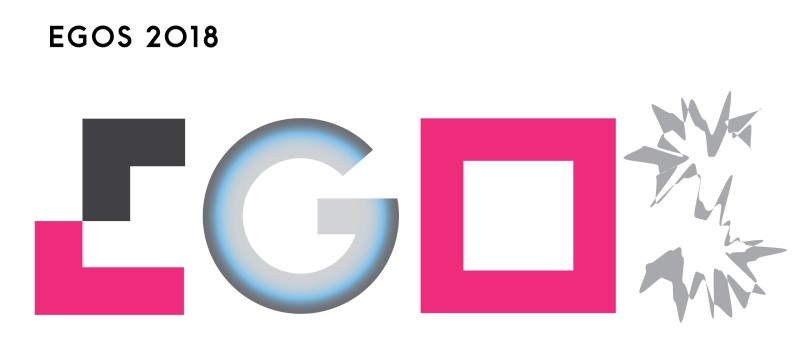Sub-theme 62: (Re-)Producing Civil Society through Organizational Practices
Call for Papers
Civil society is mostly seen as a distinct sector defined by social movements, NGOs, philanthropic and other non-governmental,
voluntary and nonprofit organizations with actors expected to create social capital (Putnam, 1995; 2000), contribute to democracy
(De Tocqueville, 1969 [1835]; Zimmer, 2007) and a range of other functions in society. They are conceived as based on a distinct
societal logic (cf. Wijkström 2011), and belonging to a distinct sector other than state, market or family, often expected
to function as a counterforce or alternative to public sector, family, or market-based solutions.
The sub-theme
on Civil Society Organizations (CSOs) challenges this understanding and ask: How do the organizational practices of CSOs produce
and carve out the space we identify as civil society? Which specific versions and visions of civil society – and of society
– does these images promote? How are these constructs mobilized and called upon to handle a number of different tasks – organizational
and other – at different levels? We encourage our contributors to surprise us by introducing various perspectives (e.g., the
mature welfare state, economies in transition) and issue fields (e.g. refugee crisis, global warming, and unemployment) and
by analyzing the civil society of organizations rather than presenting the organizations of civil society (Abbott, 1995).
The subtle shifts in balance between state, market, and family visible across the world somehow contribute to
and pave the way for strong waves that have both surprised and shocked us recently: neo-nationalism, the rise of populism;
predatory corporate behavior; the crisis of the welfare state and the disruption of traditional family patterns. These jolts
lead to unforeseen cultural clashes between groups of people, open up for attacks on the state, and question democratic ideals
and civil rights. Political and research-based answers to these new and surprising challenges and tensions often point to
civil society and its organizations as part of the solution. Expecting the CSO’s bridging or breaking down of earlier institutional
barriers or borders as an important feature. To which degree do the new, old or changing practices of civil society (re)produce
traditional boundaries and borders between civil society, state, market and family? What are the short-term and long-term
consequences and effects of this?
A long line of scholars (e.g. Alexander, 2006; Bode, 2006; Enjolras, 2009;
Evers, 2009; Clemens & Guthrie, 2011; Eliasoph, 2012; Lichterman & Eliasoph, 2014; Perez- Dias, 2014; Lilja, 2015),
have called for more agency-inspired and culture-oriented approaches to the study of civil society and its organizations.
The everyday enactment, evaluation and production of boundaries between different spheres, and the way of defining what is
the core or essence of civil society has moved into the centre of analyses (Alexander, 2006; Lichterman & Eliasoph, 2014,
pp. 851–852; Perez-Dias, 2014, p. 823). These differentiated takes on civil society direct our attention towards the processes
of producing and constructing civil society from an empirical approach, stressing the interrelated components of how civil
society and its domains are carved by organizations.
Emphasizing activities and organizational practices (re)producing
the issue fields and boundaries of civil society is – we believe – a promising point of departure, opening up for analytical
surprises. It acknowledges the multitude of interconnected practices in different contexts and opens for new – maybe unexpected
– lines of inquiry. For this call, we emphasize that civil society and its manifold actors should be studied as a historical
and empirical category instead of being taken for-granted a priori.
The sub-theme aims to shed light on these
set of themes, approaches and questions by inviting both conceptual and empirical contributions on the production of civil
society through organizational practices.
References
- Abbott, A. (1995): “Things of Boundairies.” Social Research, 62 (4), 857–882.
- Alexander, J.C. (2006): The Civil Sphere. Oxford: Oxford University Press.
- Bode, I. (2006): “Disorganized welfare mixes: Voluntary agencies and new governance regimes in Western Europe.” Journal of European Social Policy, 16 (4), 346–359.
- Clemens, E., & Guthrie, D. (eds.) (2011): Politics and Partnerships: The Role of Voluntary Associations in America’s Political Past and Present. Chicago: University of Chicago Press.
- De Tocqueville, A. (1969 [1835]): Democracy in America, ed. by J. P. Mayer. New York: Anchor.
- Eliasoph, N. (2012): The Politics of Volunteering. Malden, MA: Polity Press.
- Enjolras, B. (2009): “Between market and civic governance regimes: Civicness in the governance of social services in Europe.” Voluntas, 20 (3), 274–290.
- Evers, A. (2009): “Civicness and civility: Their meanings for social services.” Voluntas, 20, 239–259.
- Lichterman, P., & Eliasoph, N. (2014): “Civic Action.” The American Journal of Sociology, 120 (3), 798–853.
- Lilja, E. (2015): “A new ecology of civil society II.” Journal of Civil Society, 11 (4), 402–407.
- Perez-Dias, V. (2014): “Civil society: A multi-layered concept.” Current Sociology Review, 62 (6), 812–830.
- Putnam, R. (1995): “Bowling alone: America’s declining social capital.” Journal of Democracy, 6, 65–78.
- Putnam, R. (2000): Bowling Alone: The Collapse and Revival of American Community. New York: Simon & Schuster.
- Wijkström, F. (2011): “Charity Speak and Business Talk.” In: F. Wijkström & A. Zimmer (eds.): Nordic Civil Society at a Cross-Roads. Transforming the Popular Movement Tradition. Baden-Baden: Nomos, 25–55.
- Zimmer, A. (2007): Vereine – Zivilgesellschaft konkret. Wiesbaden: VS Verlag für Sozialwissenschaften.


